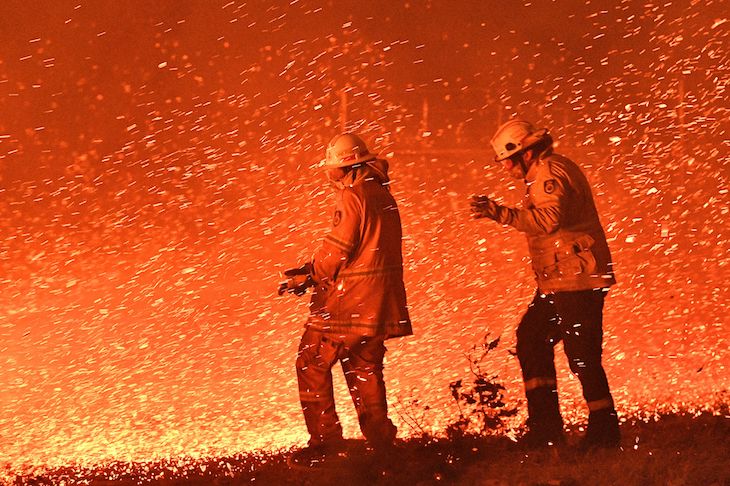In the Netflix series The Crown an entire episode is dedicated to the disaster at Aberfan. More than 100 people – mainly schoolchildren – lost their lives in October 1966 when a junior school and surrounding buildings were buried under a landslide from a colliery spoil tip. Grief spread far beyond the valleys of South Wales to grip the entire British nation.
The Queen put out a swift statement giving her condolences but didn’t visit the scene for more than a week and not until after Lord Snowdon and the Duke of Edinburgh had each attended. Her Majesty’s slow response is said to remain one of her biggest regrets during a reign which has seen few mistakes.
Is the Royal Family repeating this mistake in its response to the devastating Australian forest fires that have so far claimed more than 20 lives, injured dozens more and destroyed many hundreds of homes?
Several sincerely meant expressions of sympathy from senior royals have been issued in official statements. The Queen and the Duke of Edinburgh have sent their ‘thoughts and prayers’. Prince Charles has issued a clearly heartfelt message to Australians. The Duke and Duchess of Cambridge said they were also ‘shocked and deeply saddened’. The Sussexes have done similar, adding a line about the ‘ecocide’ caused by the global environmental crisis.
Yet so far no senior royal has been despatched to the scene to thank the emergency services in person, to visit the injured in hospital or to commiserate with people whose homes have been destroyed.
Remember, that the Queen is Australia’s head of state every bit as much as she is ours. And any nation will have an expectation that the head of state – or senior representatives of such – will play the role of mother or father of that nation in its hour of need. At the moment, the royals are simply not measuring up to that.
Were I an Australian this would not be at the forefront of my mind right now. But once the fires are out and the dust has settled, I fear I would be left with the feeling that the first family hadn’t done as much for the country as they might. And the claims of republicans that Australia needs a homegrown president would be given a boost.
New South Wales is, of course, a lot further away than south Wales and the Queen and her loyal consort of 70 years are probably too frail now for there to be any reasonable expectation that they should travel. But does the same apply to the younger royals?
How much it would be mean to our traumatised Australian kinsfolk were one – or preferably both – of William and Harry to board a plane in the coming days to offer sympathy and solidarity to the people of Australia.
Ever since the start of the British entanglement with Brussels in the early 1970s, there has been a tendency for our faithful allies in Australia and New Zealand to be out of sight and out of mind. Post-Brexit, not only will it be in our own national interest to heighten economic ties, but a rebalancing of the British international consciousness towards Commonwealth countries, in general, will also be in order.
Were I advising Boris Johnson right now, I’d be looking into the practicality of him ripping a week out of his diary to visit Australia. Once there, he should be offering British expertise and money to assist overstretched Australian public services. This should be one of those shoulder-to-shoulder moments that demand other priorities are set aside for a little while.
But, short of that, surely a Foreign Office minister should be sharing a plane with a royal delegation and going out to see what Australia is going through. Whenever grief strikes and at whatever level, it is always easier not to get more deeply involved than is strictly necessary. But that is seldom the right response. It is generally those who do step forward whose kindnesses are remembered ever more and whose bonds are most cherished.
Her Majesty, Boris Johnson and their advisers, too, should have an urgent think. There will be endless days to fret that ‘we should have gone’ but time to actually do so is running short. Aberfan will always remain a traumatic memory. Let it not come to describe a syndrome too.







Comments